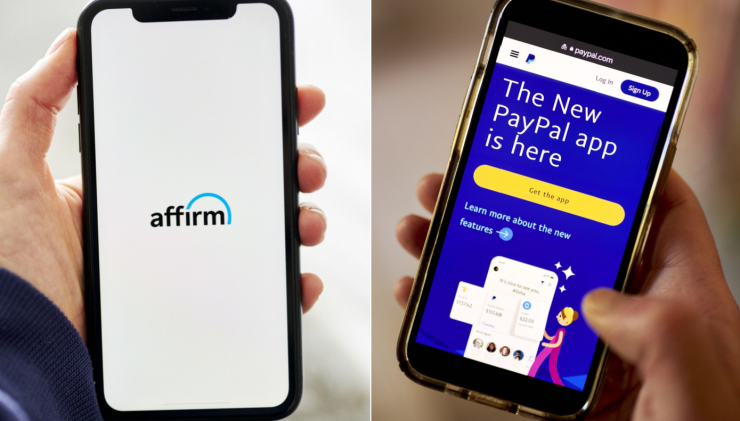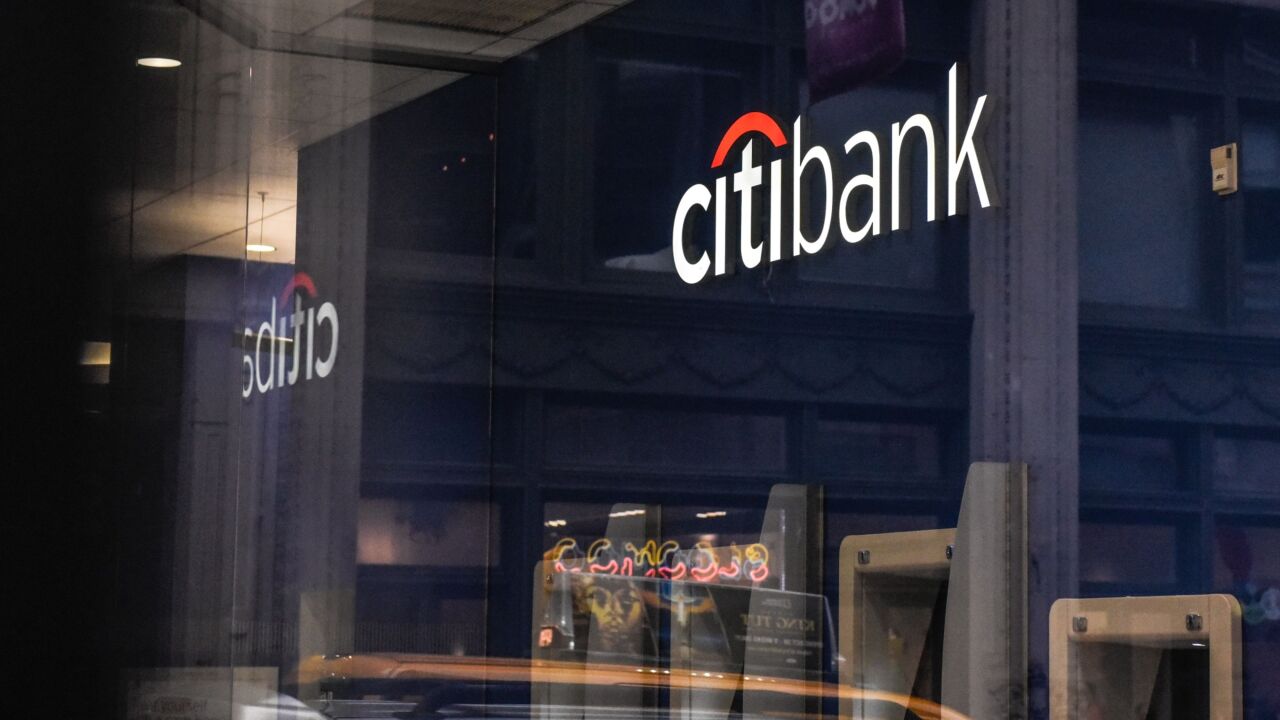Some of the biggest names in the buy now/pay later market saw their stock prices tumble in recent weeks, demonstrating that the unbridled growth they experienced in the past two years may finally be coming to an end.
Affirm’s stock has been in a downward slide for several weeks following its latest quarterly earnings report when the company signaled it’s moving away from financing big-ticket items like exercise bikes from faltering Peloton to focus on smaller loans for items sold on Shopify and
Growth remains strong — Affirm forecasts its gross merchandise volume will rise more than 75% this year — but is nowhere near last year’s heights.
Similarly, PayPal,
Affirm's stock closed on Friday at $37 a share, down 76% from its peak of $153 a share at the beginning of November 2021. PayPal's stock closed that same day at $103 a share, down 56% from $232 a share over the same time period.
Consumers last year spent nearly $100 billion in retail purchases using BNPL loans spread across major players including Klarna, Afterpay, PayPal and Zip, up more than 300% over 2020, according to research by Cornerstone Advisors.
There is still much room for expansion — BNPL loans account for less than 10% of all online purchases — but merchants are gaining negotiating leverage as newcomers pile into the installment-loan arena and banks are developing competing offerings.

A significant new BNPL entrant is payments software giant ACI Worldwide, which last week announced ACI PayAfter, a global BNPL solution prepared to connect thousands of merchants to 70 different banks and other lenders at the point of sale through a single integration.
Customers at participating merchants will see a PayAfter prompt at checkout to apply for an instant BNPL loan tailored to the specific purchase, Miami-based ACI said in a press release. Several U.S. lenders are participating, according to PayAfter.
Cost of doing business
One likely effect of competition among BNPL providers is downward pressure on the fees merchants pay.
Klarna’s CEO last month
Affirm’s latest corporate guidance calls for its take rate, or the company’s total revenue per transaction fees, to stay flat through most of this year, but some analysts expect a drop in fees.
“As Affirm continues to add enterprise clients like Amazon and Shopify, we believe the company’s take rate will continue to decline,” Daniel Perlin, managing director at RBC Capital Markets in Annapolis, Maryland, said this month in a note to investors.
While many BNPL providers still tout interest-free loans — especially for deals where buyers repay in four equal installments — Perlin noted that Affirm in recent months has been steadily moving toward offering longer-term loans with interest, akin to a typical bank loan.
Affirm's longtime
“We believe these trends are making Affirm’s financials tilt more towards a financial services, rather than a technology company, business model,” Perlin said.
That’s good news for banks for a few reasons, according to Nathan Hilt, a financial services consultant with Protiviti.
“Initially one of the things people liked about BNPL loans was their simplicity compared with credit cards, but with consumers opening multiple BNPL loan accounts it can get pretty hard to manage those versus a credit card, where all your purchases and money owed is consolidated in a single account,” Hilt said.
'The wild west'
The BNPL sector also is generally unregulated. The Consumer Financial Protection Bureau’s
“BNPL seems like the wild west, and if the CFPB adds new rules and transparency that put pressure on the existing business models, that could hurt profits,” Hilt said.
In the U.K., BNPL lenders are also not officially regulated, but the country’s financial watchdog last week
Banks are meanwhile building out their own point-of-sale lending models through Visa Installments and Mastercard Installments, augmenting the post-purchase installment loan options most of the largest issuers offer to existing credit card customers. American Express is now pushing BNPL offers at the point of sale through AmexTravel.com and Delta Airlines.
New York-based Splitit says it’s seeing strong adoption from merchants through a middle-ground approach, in which Splitit extends point-of-sale installment loans via any customer’s existing credit card, spreading out payments for specific purchases over two months to three years.
“The BNPL loan market is very hot, and if fintech players wind up consolidating because of the pressure and regulations, banks and traditional credit card issuers have a lot of different opportunities to use existing business models to capture more installment loans at the point of sale too,” said Adam Mawdesley, Splitit’s chief revenue officer.






